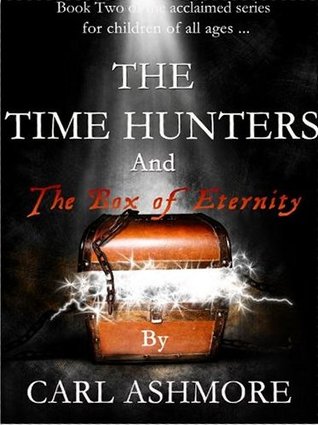I was reading The Guardian recently and wondering why the Review section doesn't have a column for aspiring writers. Actually, that's a bit of a fib. I know why because I proposed such a piece and they politely declined, saying they prefer to commission in-house or to work with people they already have a relationship with.
However, my point still stands. Where - blogs aside - are the advice columns from aspiring writers? The ones who don't say 'this is what worked for me and here's the proof', but dosay 'this never worked for me at all' or even 'this seems to be working for me although you won't find my books on the shelves yet'?
Despite the well-worn advice to be original, I suspect most writers are looking for a route into publication that has been at least tiptoed through by somebody else. And yet, ironically, each of us is nothing like anybody else. Which is why I thought I'd use this post to do the kind of interview I'd like to see in a writing magazine.
These are the rules:
a) No links.
b) No plugs.
c) Ask yourself and answer the questions you think other people (especially other writers) might want to know about you.
d) Be honest.
Here we go then...
1. What sort of writer are you?
I ask myself that everyday. My standard response is that I write fiction, non-fiction and comedy. But the truth is that I don't know what sort of writer I am. I write for fun / personal fulfilment, I write for cash and I wrote for ambition. Strangely - or luckily - for me, these competing masters rarely conflict. It's as if the respective muses have organised a timetable. So, short answer: I haven't figured that one out yet.
2. Will you ever self-publish a novel again?
Previously, I'd have said no, as it was a labour of love and relied on some expert help from friends. However, lately I've been thinking about why I started writing in the first place and that was for two reasons: to work through the story myself and to have my work read. It's only time, money and my expectations of what conventional publication will do for my work that keep me rooting for the traditional model. Plus I'd love to do a book signing.
3. You're working on your fifth novel - does it get easier?
Yes, because I think you recognise the process and you learn to trust yourself and the muse more. The story evolves and sometimes it goes places you hadn't envisaged. That can be scary and frustrating, but I think it's preferable to having a contrived tale that only meets your requirements. I can't speak for other writers but I definitely do not write only for myself.
4. What does success look like to you?
Five novels, five ISBNs and a five-figure sum. Also, the experience of collaboration on projects that take me into unfamiliar territory - plays, TV and more radio. I'm both fascinated and envious by the way some writers and performers end up in interesting places because they move in circles where those opportunities are possible. They get to extend their boundaries and develop more of their potential. Writing, as we know, is a solitary business much of the time, so having the right people around you can create unexpected adventures.
5. If money wasn't an issue, would you still write fiction, non-fiction and comedy?
Yes, with changes. I'd pick the freelance work carefully, I'd concentrate on the novels and I'd develop my own comedy projects (and complete others I started way back). I'd also love to do more gratis work to give other people a leg up.
6. How many book rejections have you had overall?
In excess of 100, spread across three novels and four humour books. And yes, that has stung a little over the course of the years. On the plus side, I saved on a roll or two of wallpaper in the downstairs loo. (And loo roll too.)
7. Social media - Holy Grail or crock of crap?
Holy crap. I think my mindset has changed around social media and for me it's more a means of connecting with writers and readers than a PR or sales portal. Apart from blogging and tweeting, I wouldn't miss the rest.
8. What advice would you give to your younger writer self?
Be courageous. Take chances. And, most importantly, live fully so that your writing has maturity and depth. Also, while I have his ear, learn quickly and move on. Don't get stuck in fixed ideas about writing, people or even yourself. Make life an adventure sooner and stop waiting for something interesting to happen. (Although, frankly, that did result in an interesting book.)
9. Any regrets as a writer?
Well, apart from whatever you can pick from the bones of my previous answers, there's the toll it takes on the other areas of your life.
Plus, I'd heard of golf widows before, but I didn't know about writing widows.
Writing is part of living, and not the other way around.
Genuinely, I regret not being able to help other writers more and vice versa. I think we either gravitate to other writers at our level or those are just the people we encounter. Sometimes it can seem like a wonderfully supportive club of fellow creatives; sometimes it feels like a buzzy competitive space; and some days it just feels like we're rats trapped in a bucket, trying to bite the hands of passing agents and editors as they waft overhead, out of reach.
Mostly I regret not getting more of an education - and by that I don't just mean qualifications. I'm talking about a greater awareness of culture and having greater creative aspirations and ambitions from a younger age. Fundamentally, I think, it's a class thing.
10. Do you actually enjoy being a writer because it doesn't always sound like it?
Absolutely. I enjoy all of it in a way - even the despondency of rejection, the agonies of editing (and then re-editing) and the confrontational challenge of the blank page. We are fortunate to live in a place and a time when we can express our ideas so freely and quickly, and reach some kind of audience within minutes. We take that for granted, but it's a privilege many others don’t have.
Okay, I'm done. So, I have two gauntlets to cast down for you:
Firstly, to my fellow Strictly Writers, to interview themselves in a similar fashion.
Secondly, to our readers. I'll answer any writing-related question about my writing practice, my experience of the world of publishing (mostly from the outside!), or about the wonderful world of freelancing.
Don't be shy now.













